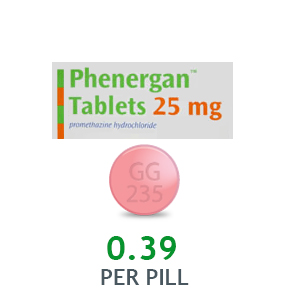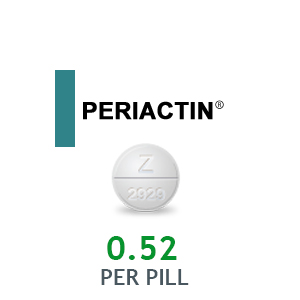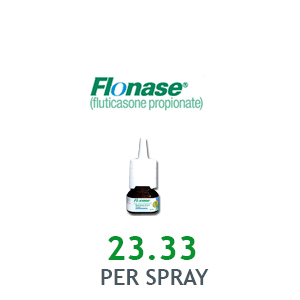Description
Phenergan (promethazine) is a medication that changes the way chemicals influence person’s brain. Promethazine is also commonly used as an antihistamine (anti-allergy) drug that inhibits the action of histamine in human body. People usually purchase Phenergan to relieve the symptoms of allergy: hives, runny nose, skin itching, sneezing and rash. The drug is also used after surgery to treat vomiting, pain and sickness, or is prescribed as a sleep aid. The pills should not be used to eliminate the signs of pneumonia, asthma and other respiratory diseases.
How does it work?
Histamine is a special substance emitted by human body as a part of protection mechanism. When released into blood, it causes symptoms of allergic reaction: skin inflammation, runny nose, itching, rash, etc. Promethazine does not let histamine to bind to receptors and ceases symptoms of allergic reaction.
Histamine may be produced and acts either in some certain body part (for instance, nose), or throughout the entire human body causing more serious allergic reactions. Promethazine is prescribed to treat both localized allergy and more serious conditions including anaphylaxis. For example, blocking histamine receptors of the vomiting center, Phenergan prevents motion sickness and suppresses vomiting reflex.
Since it causes drowsiness, promethazine is administered to patients before surgery or minor procedures and is recommended as a short-term treatment for people suffering from insomnia.
How to take it?
The recommended dose depends on the treated medical condition and age of person. Strictly follow instructions on the label and your doctor’s prescription. Both Phenergan tablets and elixir are taken regardless of meals. A pill should be swallowed with water. If the medication will not relieve the symptoms, consult with your doctor.
Generally, the course should not last for more than a week, if not prescribed otherwise. When used to treat insomnia, Phenergan is taken before going to sleep. For motion sickness, take it an hour before travelling. If you have forgotten to take a dose, do not make it up next time.
In case of overdose, seek for immediate medical help. Symptoms can include weakness, weak breathing, seizure, strong drowsiness, fainting and change of pupil size.
Warnings
If Phenergan has been prescribed for a child, you should tell the doctor if there are any weight fluctuations: the dose depends on kid’s weight. Do not give the drug to kids younger than 2 years old – it may cause problems with breathing. If you have uncontrollable movements of lips, tongue, legs, face or arms, stop taking the medication and contact your doctor.
If you take any vitamins, food additives, or other medications, tell your doctor about it, because promethazine influences the action of other drugs. Be careful, if you need to do something that requires awareness and concentration: Phenergan affects reaction and thinking.
Side effects
Do not take the drug, if it causes or worsens allergic reaction. Promethazine can cause serious drowsiness, fainting, sudden weakness, yellowing of eye and skin, change of heartbeat rate, confusion and other conditions.





